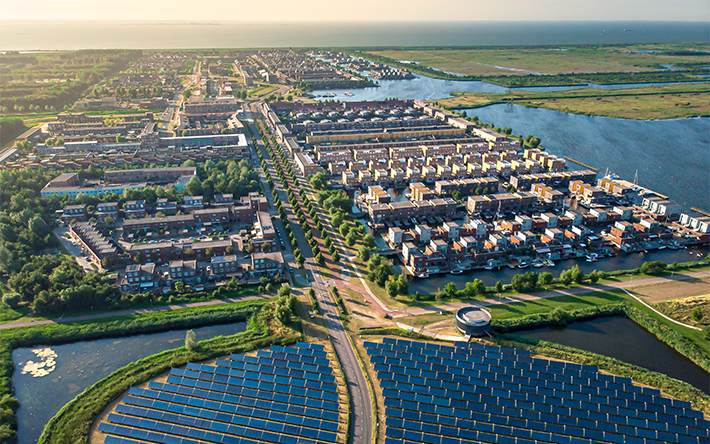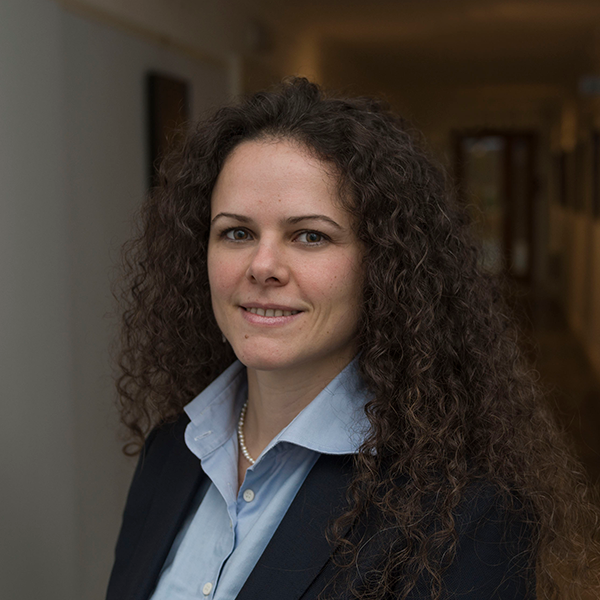
Sosiaalisen yhteenkuuluvuuden ja lähentymisen edistäminen
Yksi Eurofoundin vuosien 2021–2024 työohjelman kuudesta keskeisestä toimesta on sosiaalisen yhteenkuuluvuuden ja lähentymisen edistäminen. Eurofound jatkaa työtään asiantuntijakeskuksena, joka seuraa ja analysoi keskeisiä suuntauksia ja määrääviä tekijöitä elin- ja työolojen ylöspäin tapahtuvan lähentymisen aikaansaamisessa ja taloudellisen ja sosiaalisen yhteenkuuluvuuden vahvistamisessa EU:ssa. Covid-19 -pandemia on aiheuttanut EU:n taloudelliselle ja sosiaaliselle sietokyvylle ennennäkemättömän haasteen ja osoittanut sen, kuinka haurasta lähentymismalleissa jo aikaansaatu edistys on.
Eurofound tuottaa neljän seuraavan vuoden aikana tärkeää tietoa haasteista ja tulevaisuudennäkymistä sosiaalisen yhteenkuuluvuuden ja lähentymisen alalla EU:ssa. Näin se auttaa EU:n talouksia ja yhteiskuntia varmistamaan sietokyvyn tulevissa iskuissa. Eurofound laajentaa edellisinä vuosina ylöspäin tapahtuvan lähentymisen parissa tekemäänsä työtä. Se keskittyy erityisesti siihen, että kansalaisten keskuudessa voi alkaa levitä uudenlaista eriarvoisuutta, sekä siihen, miten voidaan puuttua yhä suurempiin haasteisiin, joita kriisi on aiheuttanut sosiaaliselle yhteenkuuluvuudelle. Virasto raportoi säännöllisesti ylöspäin tapahtuvaa sosiaalista ja taloudellista lähentymistä koskevista suuntauksista sekä jäsenvaltioiden ja alueiden kannalta merkittävistä lähentymisen ulottuvuuksista, joita käsitellään Euroopan sosiaalisten oikeuksien pilarissa. Se myös vertaa EU:ta muihin kehittyneisiin maihin.
Taloudellisen ja sosiaalisen lähentymisen liikkeellepanevia voimia ja seurauksia selvittäessään Eurofound kiinnittää huomiota useisiin eri tekijöihin. Niitä ovat sosiaaliset investoinnit, liikkuvuus ja institutionaaliset kehykset, sääntely, sosiaaliturvajärjestelmät, instituutioiden laatu ja julkiset palvelut , työmarkkinaosapuolten vuoropuhelu ja rakenteelliset uudistukset. Tutkimuksessa pyritään selvittämään, onko EU reagoinut pandemiaan tehokkaasti taloudellisen ja sosiaalisen lähentymisen kannalta. Siinä otetaan huomioon myös euroalueen tilanne sekä keskitytään siihen, miten työmarkkinasuhteita koskevat prosessit vaikuttavat lähentymiseen.
Eurofound tutkii sosiaalisen yhteenkuuluvuuden suuntauksia ja liikkeellepanevia voimia Euroopan unionissa. Se tarkastelee erityisesti sitä, miten covid-19-pandemia on lisännyt olemassa olevaa eriarvoisuutta tai luonut uutta ja miten se vaikuttaa yhteiskuntaan yleisemmin tai tiettyihin kansalaisryhmiin. Analyysissa keskitytään taloudellisiin, sosiaalisiin ja terveyteen liittyviin eroihin sekä työmarkkinoilla että olennaisten tavaroiden ja palvelujen saatavuudessa ja laadussa. Tämä koskee muun muassa terveydenhoitoa, asumista, koulutusta ja sosiaalista suojelua . Myös eriarvoisuuden sekä instituutioita kohtaan tunnetun luottamuksen ja tyytymättömyyden välistä yhteyttä tutkitaan. Muita tutkimusaloja ovat muun muassa muuttoliike , kotoutuminen ja yhteiskunnalliset jännitteet.
Tästä toiminnasta saatavat tutkimustulokset edistävät Euroopan komission eri yksiköiden sekä työllisyyskomitean (EMCO), sosiaalisen suojelun komitean (SPC), talous- ja rahoituskomitean (TRK), neuvoston ja Euroopan parlamentin työtä, myös talouspolitiikan EU-ohjausjakson yhteydessä.
Covid-19-kriisi on palauttanut ylöspäin tapahtuvaa lähentymistä koskevan käsitteen poliittisen keskustelun keskiöön. Ylöspäin tapahtuva lähentyminen on tärkeää unionin vakaudelle. Jos lupausta ylöspäin tapahtuvasta lähentymisestä ei lunasteta, se voi heikentää unionin toimintaa ja aiheuttaa poliittista tyytymättömyyttä koko Euroopan unionia kohtaan.
Massimiliano Mascherini, sosiaalipolitiikan yksikön päällikkö




























